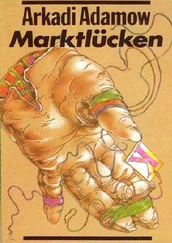Can you try it on me? asked Robert then. Can I see what you mean? And so Martin stood up, and reached over the fencing separating the stoops, and put his hand down on Robert’s head. Robert closed his eyes. Martin’s hand reached in deep, through his thick hair, the tabs of all his fingers pulsing. Robert sat strangely like that, Martin’s fingers moving above him. He waited for something to happen, for the message to hit him like experience, but it didn’t. Robert thought that Martin seemed disappointed. Try me, Martin said, and sat down and took his headphones off. Robert extended his hand, but couldn’t bring himself to touch Martin’s head. He looked around him at the cold, quiet street. It’s OK, he said. It is OK, said Martin. Martin put his headphones back on and listened to his music quietly.
• • •
The oldest Braiker boy was used to being on the rooftop. From there, either on his family’s side or Martin’s, he could see the long line of houses on R, and Fillmore and Quentin on either side. There was the large, imposing structure of PS 222, the local public school that he had gone to. When he was a student there he’d been convinced that the building had once been a rich man’s mansion, and that’s why the names of the rooms were so particular and color oriented. The Green Room, now the gym. The Blue Room, which still smelled like chlorine, on the first floor — now the cafeteria. The detail that clinched it was his discovery, in fifth grade, of a dumbwaiter, at the back of his fifth-floor classroom. He stuck his head inside during independent reading and the teacher ran over and held his legs while she screamed for the teacher’s aid to go get help.
The rooftop was the only place where you could find flat open ground where nobody else was watching. The Braiker boy liked to lie there and imagine jumping from one plot of houses to another. They weren’t all that far away, actually. The alleys were thin. Truth be told, he had measured the gap once and found that if he was an Olympic level long-jumper, on a practice jump even, he could do it. Sometimes he stood on the very edge, his sock-covered toes clinging to the siding. When the B2 came humming down the avenue it shook the houses a tiny, imperceptible amount, just enough that his body shivered a little. He was fairly certain he’d survive the fall. He’d heard of weirder things happening.
The Braiker boy had brought the Ventrone girl up to the roof with him. The morning of, he’d gone up and thrown some old blankets down. He didn’t really think that anything would happen. They got on the bus to go to Madison HS together in the morning — both of their classes started on the early session. They didn’t say anything about it, though they’d planned it off and on for a week. Second period, he could hardly listen to Mr. Kelly talk about unit circles and sine functions. When they got out, it was hardly noon. They stopped for pizza at Pronto’s on R and Nostrand, sat in the new expanded section that looked like a real restaurant. The Braiker boy paid, which he hadn’t done before. She said, All right then.
Her hand slipped on the ladder as she was going up. It was old and in his parents’ closet. He’d pushed aside his father’s pinstriped suits to give her room. The trapdoor was heavy, and he regretted having let her go up first, though he felt that this was the gentlemanly thing to do. From two rungs below he pushed with his hand as well. She was that much smaller than him. The grating sounded like something was broken. It happens all the time, he said. Once he’d gone up in a lightning storm and it had sounded much worse than that, the wetness of the metal and plaster hinge shrieking. He’d lain under an old rain jacket, looking below him at the double yellow line in the middle of the street, blinking from the rain.
With the Ventrone girl, there were no such weather issues. After looking over the edge, she ran up and down the block of houses, dodging the spaces where the trapdoors came up out of the roof. The Braiker boy, who had done this all before, sat down on the blanket. It was a wool blanket, and he regretted it suddenly. The Braiker boy picked up the blanket, smoothed it out, brushed the pebbles off the ground underneath it. When the Ventrone girl sat down with him he found that he had nothing to say except apologize for the rapid beating of his heart. His palms weren’t sweaty. But he was sure that she could feel it.
Robert Dillon saw the Ventrone girl leave. He had the day off from work because the EVP was in Las Vegas for a conference. He was lounging in the living room reading a paperback by the wide front window when he saw her. He had almost been asleep. The lull of the B2s going by could do that. She stuck out, though, because she was walking so fast. She pulled the door shut too hard and walked toward Quentin with a purpose. Later, after Robert had cooked pasta for him and Amanda, after Amanda had finished her daily glass of wine, he laughingly told her about it. Amanda had just gotten off the phone with her father, who had moved back into the house, and Robert was casting around for things to say. Funny story, he said, today. Amanda was indignant. You saw that happening and you didn’t say anything? They’re underage; their parents should know. Robert was surprised. He didn’t know whether to tell Amanda that he’d lost his virginity in his freshman year of high school, or whether it was too late. He tried to think of something else to talk about. I’m sure Martin saw too, he said.
Right, Amanda said. That’s useful.
• • •
Amanda’s father, Rich, wasn’t all that bad a man. True, he was known by the neighbors to stomp out the front door, slamming hands on everything: not just the door, their car sometimes even, so that they wanted to bring it up, but who could have the heart. He was the football coach and assistant baseball coach at Madison. He’d been all-everything at Madison when he went there, in the seventies, lettering in football and baseball. Baseball had been his true love. He played football because it got you some respect. But he’d grown to like it as a coach. Had to — he didn’t have any other options. There wasn’t any way he was going to be a fireman, or a cop. He wasn’t that stupid. The longtime field caretaker, Grady, retired his senior year, and they hired Rich for after he graduated. He was already working the day of. The principal said to him, Rich, you can get your robe later. First we need some more help with the bleachers. His mother never forgave him.
It got so bad one summer, when he’d been looking particularly boozy and blotchy for days, he told everyone that he had cancer. Not everyone at first; first just the men at the Mariners Inn. Which was the incredible thing about that place, that they kept it to themselves. Nobody liked to talk about things like that. But then he started saying it to everyone, whenever he could. You know Rich has cancer, Big Bailey’s wife said to Big Bailey one day. I heard about that, he said. He was stopping people on street corners, telling them, reeking. What could you say?
When his wife let him back into the house, it was autumn. It would have been fall baseball season already. He’d missed summer football training, and you couldn’t mess with a team once you’d missed summer training. He hadn’t even had a landline at the hole he found in Howard Beach until he moved back in. But now it was baseball season, the high school kind. Madison had gotten to the city championship the year before, and everyone thought they should do it again. Technically, Rich was the pitching coach, not that he knew anything about pitching. He assumed they’d found a new assistant. Some recent graduate who didn’t want to go into the fire department either. Fewer and fewer, it seemed to Rich, were going since 9/11. Rich didn’t blame them. He remembered that morning, driving to the middle school to pick up Amanda. I can walk, Dad, she’d told him. He had opened the car door for her. Is there going to be a war? she’d asked him. He was looking down the boulevard on Quentin, watching what looked like smoke across the island. Shut up, he said. He didn’t let her go outside to pick up the papers that had floated the ten miles from across the river. He didn’t want her to have that memory. Rich was good for a while after that, but soon he stopped. Everyone talked about it as little as possible. It was already a long time ago.
Читать дальше











